Mitsubishi Eclipse Cross vs Volvo XC90 – Which model is better for everyday use?
Everyday use, family trips or long-distance drives – here’s where the differences show.
Discover whether Mitsubishi Eclipse Cross or Volvo XC90 fits your lifestyle better.
Costs and Efficiency:
Price and efficiency are key factors when choosing a car – and this is often where the real differences emerge.
Mitsubishi Eclipse Cross has a decisively advantage in terms of price – it starts at 36000 £, while the Volvo XC90 costs 69800 £. That’s a price difference of around 33771 £.
Fuel consumption also shows a difference: Mitsubishi Eclipse Cross manages with 2 L and is therefore convincingly more efficient than the Volvo XC90 with 3.50 L. The difference is about 1.50 L per 100 km.
As for range, the Volvo XC90 performs noticeable better – achieving up to 71 km, about 26 km more than the Mitsubishi Eclipse Cross.
Engine and Performance:
Power, torque and acceleration say a lot about how a car feels on the road. This is where you see which model delivers more driving dynamics.
When it comes to engine power, the Volvo XC90 has a clearly edge – offering 455 HP compared to 188 HP. That’s roughly 267 HP more horsepower.
In acceleration from 0 to 100 km/h, the Volvo XC90 is clearly quicker – completing the sprint in 5.40 s, while the Mitsubishi Eclipse Cross takes 10.90 s. That’s about 5.50 s faster.
In terms of top speed, the Volvo XC90 performs barely noticeable better – reaching 180 km/h, while the Mitsubishi Eclipse Cross tops out at 162 km/h. The difference is around 18 km/h.
Space and Everyday Use:
Cabin size, boot volume and payload all play a role in everyday practicality. Here, comfort and flexibility make the difference.
Seats: Volvo XC90 offers clearly perceptible more seating capacity – 7 vs 5.
In curb weight, Mitsubishi Eclipse Cross is barely noticeable lighter – 1985 kg compared to 2080 kg. The difference is around 95 kg.
In terms of boot space, the Mitsubishi Eclipse Cross offers slightly more room – 359 L compared to 302 L. That’s a difference of about 57 L.
In maximum load capacity, the Volvo XC90 performs clearly better – up to 1856 L, which is about 748 L more than the Mitsubishi Eclipse Cross.
When it comes to payload, Volvo XC90 noticeable takes the win – 710 kg compared to 440 kg. That’s a difference of about 270 kg.
Who wins the race?
The Volvo XC90 proves to be outperforms in nearly all aspects and therefore becomes our DriveDuel Champion!
Volvo XC90 is the better all-rounder in this comparison.
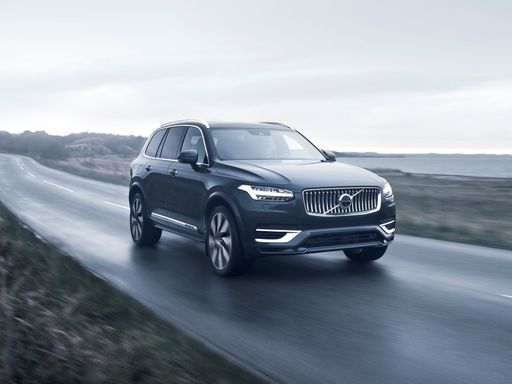
Volvo XC90
Mitsubishi Eclipse Cross
The Mitsubishi Eclipse Cross presents a sleek fusion of dynamic design and versatile functionality, perfect for urban adventures and weekend getaways alike. Its elegant lines and bold front grille make a strong statement on the road, while its well-appointed interior offers a comfortable and connected driving experience. With advanced safety features and intuitive technology, the Eclipse Cross ensures drivers feel secure and in control, whether navigating city streets or scenic routes.
details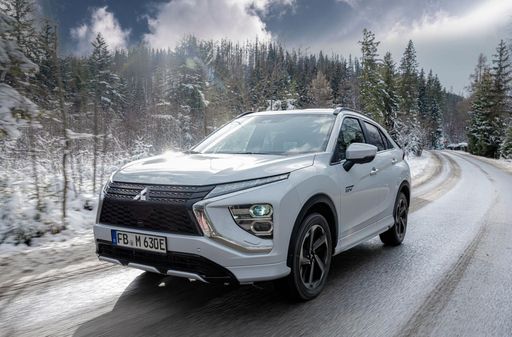 @ Mitsubishi Motos
@ Mitsubishi Motos
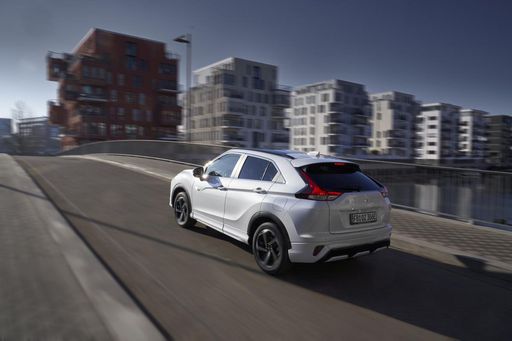 @ Mitsubishi Motos
@ Mitsubishi Motos
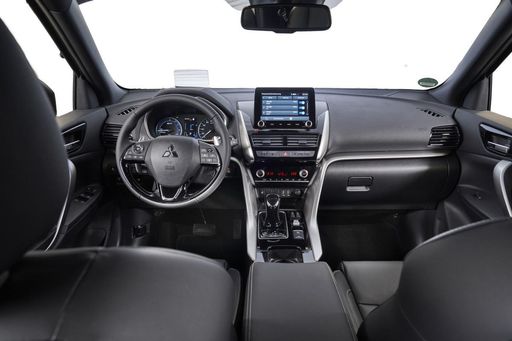 @ Mitsubishi Motos
@ Mitsubishi Motos
Volvo XC90
The Volvo XC90 stands out with its elegant Scandinavian design, seamlessly blending luxury with versatility. Inside, it offers a spacious and meticulously crafted interior, showcasing high-quality materials and advanced technology. The vehicle provides a comfortable and smooth driving experience, making it a popular choice for families and long journeys.
details @ media.volvocars.com
@ media.volvocars.com
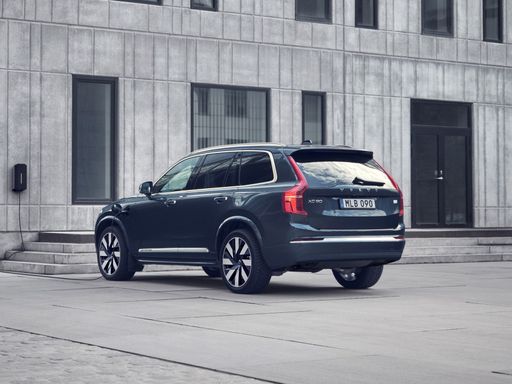 @ media.volvocars.com
@ media.volvocars.com
 @ media.volvocars.com
@ media.volvocars.com
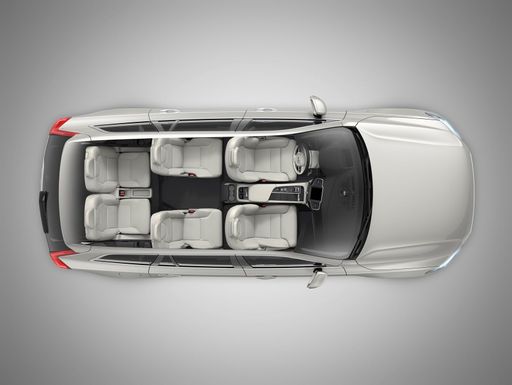 @ media.volvocars.com
@ media.volvocars.com
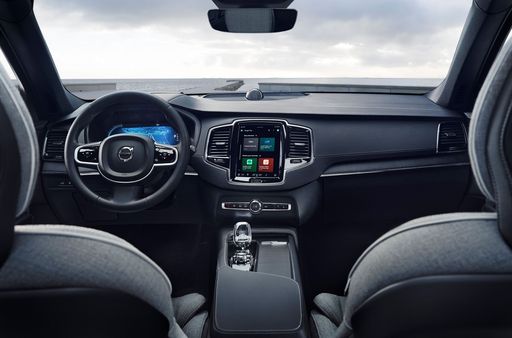 @ media.volvocars.com
@ media.volvocars.com

|

|
|
|
|
Costs and Consumption |
|
|---|---|
|
Price
36000 - 42000 £
|
Price
69800 - 84600 £
|
|
Consumption L/100km
2 L
|
Consumption L/100km
3.5 - 8.5 L
|
|
Consumption kWh/100km
-
|
Consumption kWh/100km
-
|
|
Electric Range
45 km
|
Electric Range
71 km
|
|
Battery Capacity
-
|
Battery Capacity
14.70 kWh
|
|
co2
46 g/km
|
co2
79 - 191 g/km
|
|
Fuel tank capacity
43 L
|
Fuel tank capacity
71 L
|
Dimensions and Body |
|
|---|---|
|
Body Type
SUV
|
Body Type
SUV
|
|
Seats
5
|
Seats
7
|
|
Doors
5
|
Doors
5
|
|
Curb weight
1985 - 2052 kg
|
Curb weight
2080 - 2297 kg
|
|
Trunk capacity
359 L
|
Trunk capacity
262 - 302 L
|
|
Length
4545 mm
|
Length
4953 mm
|
|
Width
1805 mm
|
Width
1923 mm
|
|
Height
1685 mm
|
Height
1771 mm
|
|
Max trunk capacity
1108 L
|
Max trunk capacity
1816 - 1856 L
|
|
Payload
373 - 440 kg
|
Payload
653 - 710 kg
|
Engine and Performance |
|
|---|---|
|
Engine Type
Plugin Hybrid
|
Engine Type
Petrol MHEV, Plugin Hybrid
|
|
Transmission
-
|
Transmission
Automatic
|
|
Transmission Detail
-
|
Transmission Detail
Automatic Gearbox
|
|
Drive Type
All-Wheel Drive
|
Drive Type
All-Wheel Drive
|
|
Power HP
188 HP
|
Power HP
250 - 455 HP
|
|
Acceleration 0-100km/h
10.90 s
|
Acceleration 0-100km/h
5.4 - 7.7 s
|
|
Max Speed
162 km/h
|
Max Speed
180 km/h
|
|
Torque
-
|
Torque
360 - 709 Nm
|
|
Number of Cylinders
4
|
Number of Cylinders
4
|
|
Power kW
138 kW
|
Power kW
184 - 335 kW
|
|
Engine capacity
2360 cm3
|
Engine capacity
1969 cm3
|
General |
|
|---|---|
|
Model Year
2021 - 2022
|
Model Year
2024 - 2025
|
|
CO2 Efficiency Class
B
|
CO2 Efficiency Class
G, B
|
|
Brand
Mitsubishi
|
Brand
Volvo
|
What drive types are available for the Mitsubishi Eclipse Cross?
Available configurations include All-Wheel Drive.
The prices and data displayed are estimates based on German list prices and may vary by country. This information is not legally binding.
